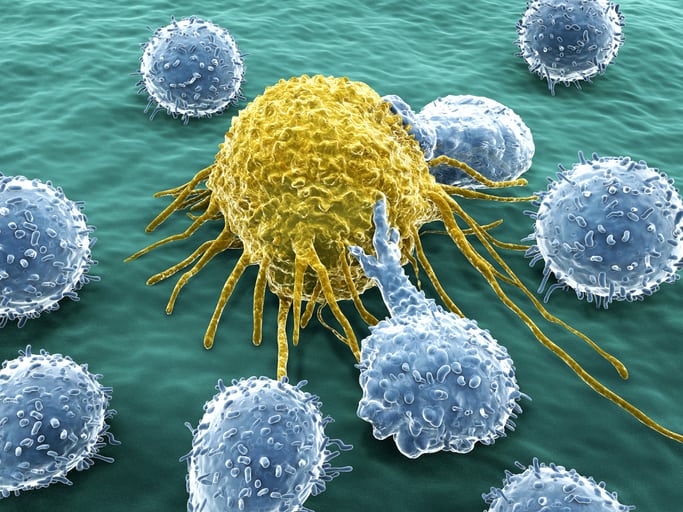Immunotherapy has revolutionized cancer treatment; however, only a limited portion of patients show responses to currently available immunotherapy regimens. Here, we demonstrate that RNA interference (RNAi) combined with immunogenic chemotherapy can elicit potent antitumor immunity against melanoma. Specially, we developed cationic polymer-lipid hybrid nanovesicles (P/LNVs) as a new delivery system for doxorubicin and small interfering RNA (siRNA) with extensive cytotoxicity and gene silencing efficiency towards B16 cells. The deployment of doxorubicin-loaded P/LNVs augmented the expression and presentation of endogenous tumor antigens directly in situ by inducing the immunogenic cell death of B16 cells through poly(ADP-ribose) polymerase 1-dependent (PARP1) apoptosis pathway; thereby, eliciting remarkable antitumor immune responses in mice. Leveraging dying B16 cells as a vaccination strategy in combination with RNAi-based programmed cell death ligand 1 (PD-L1) knockdown showed efficacy in both prophylactic and metastasis melanoma settings. Strikingly, PD-L1 blockade synergized with a sub-therapeutic dose of doxorubicin triggered robust therapeutic antitumor T-cell responses and eradicated pre-established tumors in 30% of mice bearing B16 melanoma. Our findings indicated that this combination treatment provided a new powerful immunotherapy modality, characterized by markedly increased infiltration of effector CD8 T cells and effective alleviation of the immunosuppressive microenvironment in tumors. P/LNVs is a versatile and highly scalable carrier that can enable a broad combination of nanomedicine and RNAi, providing new therapeutic strategies for advanced cancers.Copyright © 2020 Elsevier Ltd. All rights reserved.
Polymer-lipid hybrid nanovesicle-enabled combination of immunogenic chemotherapy and RNAi-mediated PD-L1 knockdown elicits antitumor immunity against melanoma.


